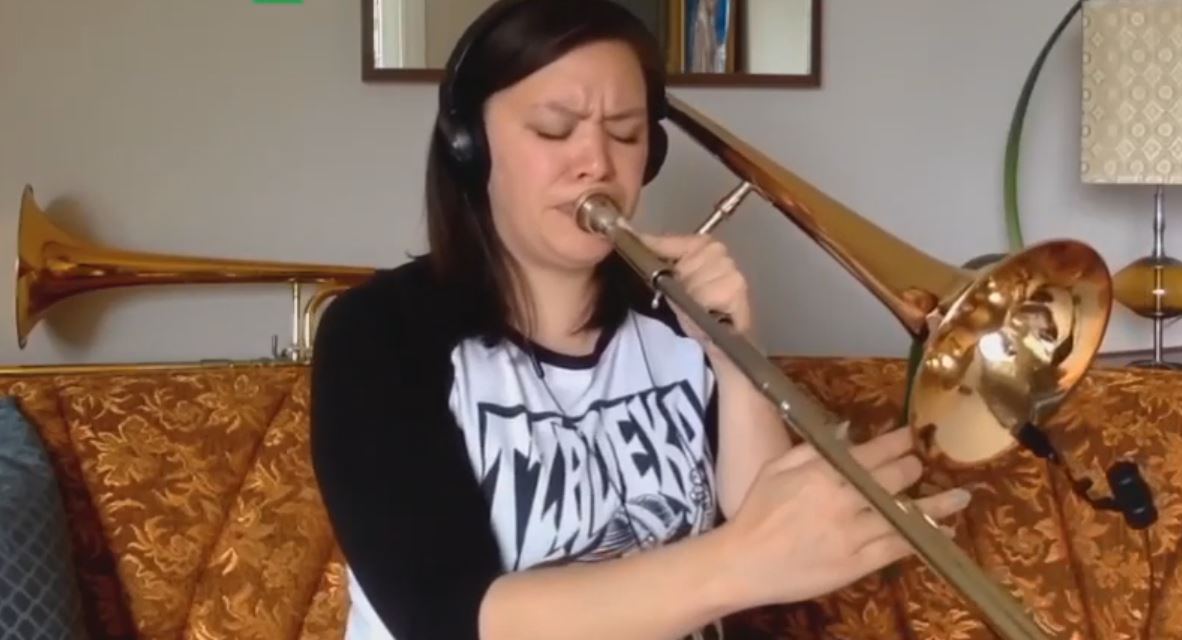COVID-19 obliterated the livelihood of musicians — but JazzYYC wanted to do something about that by putting on 28 days of music online.

The virtual jazz festival, which ran from April 30 (International Jazz Day) to May 27, featured 66 artists on 29 livestreams and 22 artists in 19 educational videos.
Songs were interspersed with host conversations, which provided a window into the life of the artist, organizers said.
The Calgary non-profit usually puts on the JazzYYC International Jazz Days Festival for three days — not a month.
‘Getting online in a big way’
In March, when things weren’t looking favourable for live events, JazzYYC knew it had to step in to support the community in any way it could.
“Artists, in general, are the ones who I think are least able to weather these types of storms. When you consider social gatherings or how artists make their living, we kind of knew, well, that’s gone,” said Kodi Hutchinson, artistic producer of the jazz festival, on Tuesday.
“Most of my musician friends had all their work for up to a year dry up in two days. So we just decided, well, what can we do to support the community? Let’s turn this three-day thing into as much impact as we can.”
JazzYYC quickly went from being a bricks-and-mortar presenter to showcasing artists online, which it had never done before.
Seventy per cent of participants either live in or were originally from Calgary; the remainder were from across Canada and one was from the U.S. Performers ranged in age from 14 to 84. JazzYYC said women accounted for half of paid livestream featured artists.
It took two weeks to plan the month-long festival. Organizers said it was “exceedingly hard” and had a few hiccups but it brought a huge sense of accomplishment.

Get breaking National news
“We put together a full digital production team in two weeks and every single show made it to air,” Hutchinson said.
It was historic for JazzYYC.
“I would say we were one of the fastest organizations out there in Canada getting online in a big way,” Hutchinson said.
“When we look at it, just the bulk of content we were able to generate at a high level, that was, for us, historical as well.”
Technology even allowed for two musicians in separate locations to jam with each other, improvising in real-time.
If it looks easy and seamless online, it means a lot of work was put into it, Hutchinson said, adding that tech co-ordinators spent hours on the phone with musicians for soundchecks.
Canada’s first virtual jazz festival
JazzYYC said it was the first major festival in Canada to come out with large-scale programming meant to help artists.
“Every person who was involved in the background — every contractor we brought on — was paid. We spent money when everyone else… closed their pocketbook.”
Even though the fest is over, people can still enjoy the music at their own leisure, Hutchinson said.
“It was a completely free offering where all the artists got paid and we built a team that can do this moving forward to deal with what’s going on in the world right now, in the real sense that artists can’t be together,” he said, noting that the non-profit didn’t even ask for donations because it wasn’t the time.
Reinvention
Hutchinson said the virtual festival helped artists get online and do something that will help them survive during the pandemic. He called it one of the most rewarding parts of his career.
“One artist said on air, ‘Thank you for making lemonade when all there were was lemons.'”













Comments